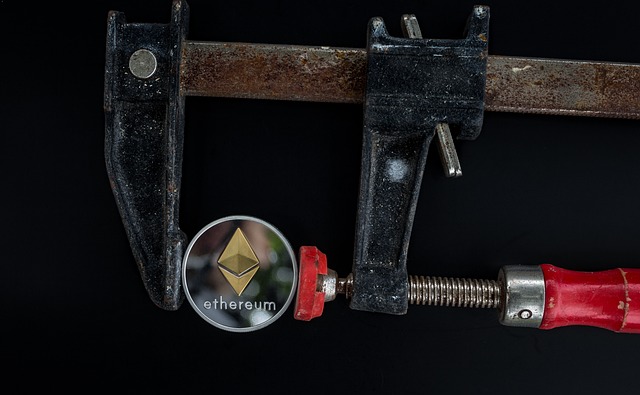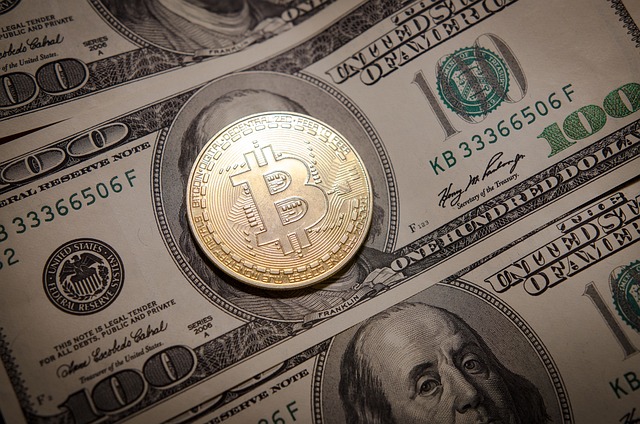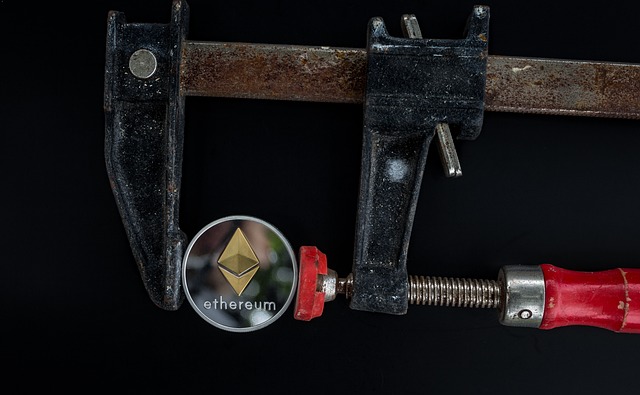Decentralized Finance Benefits for Investors: A Strategic Overview
Decentralized Finance Benefits for Investors: A Strategic Overview

What is Decentralized Finance?
Decentralized Finance, commonly known as DeFi, is an emerging trend in the financial world. It refers to a decentralized system of financial services that operates on blockchain technology, without the need for intermediaries like banks or financial institutions. In simple terms, it allows individuals to access financial services, such as lending, borrowing, trading, and investing, using digital assets and smart contracts.
One of the main reasons why DeFi is gaining popularity is its promise of financial freedom and inclusivity. Unlike traditional financial systems that often have strict regulations and high entry barriers, DeFi platforms are accessible to anyone with an internet connection. This means that individuals who previously had limited access to financial services, especially in underserved communities, can now participate and benefit from the global financial landscape. Additionally, DeFi eliminates the need for intermediaries, reducing costs and increasing efficiency for users.
Why is Decentralized Finance gaining popularity?
Decentralized Finance, or DeFi, has been making waves in the financial industry, gaining tremendous popularity in recent years. One of the key reasons behind its rise is the growing trust deficit towards traditional financial systems. People have witnessed numerous instances of corruption, manipulation, and lack of transparency within centralized financial institutions. As a result, individuals are seeking alternatives that provide greater security and control over their financial transactions.
Another driving force propelling the popularity of DeFi is the democratization of financial services. Traditional banking systems often alienate individuals who do not have access to formal financial services due to geographical constraints, lack of identification documents, or low income levels.

The combination of transparency, security, and accessibility offered by DeFi has attracted numerous investors, both seasoned and newbies, looking for alternative investment opportunities. The potential for higher returns is another factor that has played a significant role in DeFi’s popularity. Unlike traditional financial systems, DeFi eliminates intermediaries and their associated fees, thereby allowing investors to earn higher profits on their investments. Moreover, DeFi protocols utilize smart contracts, which automatically execute transactions based on pre-programmed conditions, reducing the risk of human error or manipulation.
As investors continue to seek avenues for greater control, ease of access, and higher returns, DeFi is expected to witness continued growth and popularity. However, it is crucial for investors to thoroughly understand the risks associated with DeFi investments and adopt risk management strategies to safeguard their assets. Going forward, the integration of automation, advanced technologies, and enhanced regulatory frameworks will further enhance the benefits of DeFi and pave the way for a more inclusive and transparent financial landscape.
Understanding the benefits of Decentralized Finance for investors.
Decentralized Finance (DeFi) has been garnering immense attention in the financial industry, and for good reason. One of the key benefits that DeFi offers to investors is the potential for higher returns on their investments. Unlike traditional financial systems, which are often limited by geographical boundaries and rigid regulations, DeFi opens up a world of opportunities for investors to access a wide range of assets and investment strategies. By leveraging blockchain technology and smart contracts, DeFi platforms enable investors to participate in decentralized lending, borrowing, trading, and more. This decentralized nature eliminates the need for intermediaries, reduces fees, and provides investors with greater control over their assets, ultimately increasing the potential for higher profits.
Another significant advantage that DeFi brings to the table is financial inclusivity. In traditional finance, many people are excluded from accessing crucial financial services due to various barriers, such as high transaction costs, documentation requirements, and lack of credit history. However, DeFi aims to eliminate these barriers by offering open and permissionless financial services to anyone with an internet connection. This means that individuals who were previously underserved or excluded from traditional financial systems now have the opportunity to participate in lending, borrowing, investing, and other financial activities. The inclusive nature of DeFi not only empowers individuals but also helps to bridge the global wealth gap and promote economic growth on a larger scale.
How Decentralized Finance promotes financial inclusivity.
Decentralized Finance, also known as DeFi, has emerged as a revolutionary solution that aims to promote financial inclusivity. Unlike traditional financial systems that are often inaccessible to individuals without a bank account or credit history, DeFi provides an open and permissionless platform for anyone with internet access to participate in various financial activities. This decentralization fosters inclusion by removing the barriers imposed by centralized authorities and intermediaries.
One of the ways DeFi promotes financial inclusivity is through its ability to facilitate peer-to-peer lending. In traditional banking, individuals who do not meet the strict criteria set by banks or financial institutions often face difficulties in obtaining loans. However, in the world of DeFi, individuals can access decentralized lending platforms that allow them to borrow or lend funds directly from other participants. This opens up opportunities for individuals who have been excluded from traditional lending systems, creating a more inclusive financial ecosystem where individuals can access the capital they need to pursue their aspirations.
Exploring the potential for higher returns in Decentralized Finance.
Decentralized Finance (DeFi) has become an increasingly popular investment option due to its potential for higher returns. Unlike traditional financial systems that rely on intermediaries, DeFi allows investors to directly interact with decentralized applications (dApps) built on blockchain technology. This eliminates the need for custodians, brokers, or intermediaries, reducing costs and increasing potential returns.
One of the key factors contributing to the potential for higher returns in DeFi is the ability to participate in yield farming and liquidity mining. These strategies involve staking cryptocurrencies in various protocols to earn interest or rewards. With DeFi, investors can earn a substantial yield on their assets, often surpassing what is achievable through traditional financial instruments. Furthermore, as the DeFi space continues to evolve and new protocols are introduced, the potential for even greater returns becomes apparent. However, it is essential to keep in mind that higher returns come with higher risks, and investors should thoroughly understand the risks and do their due diligence before diving into DeFi investments.
Managing risk factors in Decentralized Finance investments.
Risk management is a crucial aspect when it comes to investing in Decentralized Finance (DeFi). While DeFi offers numerous opportunities for higher returns and financial growth, it is essential to understand and manage the inherent risks associated with this emerging field. One of the primary risk factors in DeFi investments is volatility. Unlike traditional financial markets, which are more regulated, DeFi operates in a decentralized ecosystem that can be subject to sudden and drastic price fluctuations. To mitigate this risk, investors should diversify their portfolio, spreading their investments across various DeFi projects and assets, to minimize potential losses that may arise from volatile market conditions.
Another risk factor to be considered in DeFi investments is the possibility of smart contract vulnerabilities. Smart contracts, which are self-executing agreements written in code, are at the heart of many DeFi protocols. However, due to their complex nature, they can have coding errors or be susceptible to hacking attempts. To manage this risk, investors should thoroughly research and evaluate the security measures implemented by DeFi platforms and choose projects that prioritize robust smart contract audits and regular security upgrades. Additionally, staying updated with the latest industry news and developments can help investors identify potential vulnerabilities or risks associated with specific DeFi projects.
The role of automation and smart contracts in Decentralized Finance.
Automation and smart contracts play a pivotal role in Decentralized Finance (DeFi), revolutionizing the way financial transactions are conducted. By leveraging automated processes and self-executing contracts, DeFi platforms eliminate the need for intermediaries traditionally found in centralized financial systems. This not only reduces costs but also significantly speeds up transaction times, ensuring a more efficient and seamless experience for users. For instance, smart contracts enable automated lending and borrowing, eliminating the need for manual approval processes and reducing the potential for human error. These automated systems also provide investors with real-time data and analytics, facilitating quicker decision-making and enhancing overall portfolio management.
Additionally, automation and smart contracts enhance the security and trustworthiness of financial transactions within DeFi platforms. Smart contracts are built on blockchain technology, which inherently guarantees transparency and immutability. Once a smart contract is deployed, its code cannot be altered, ensuring the integrity of the agreement and eliminating the possibility of fraud or manipulation.

Improving transparency and trust in financial transactions through Decentralized Finance.
Decentralized Finance (DeFi) has emerged as a game-changer in the financial industry, offering innovative solutions that improve transparency and trust in financial transactions. Unlike traditional centralized systems, DeFi relies on blockchain technology to ensure that every transaction is recorded on a public ledger, accessible to everyone. This transparency eliminates the need for intermediaries, such as banks or financial institutions, reducing the chances of fraudulent activities or manipulation of financial data. With DeFi, individuals can verify the legitimacy of transactions themselves, giving them greater control over their financial assets.
Moreover, DeFi enhances trust by implementing smart contracts, which are self-executing contracts with predefined conditions that automatically enforce themselves when met. This eliminates the need for intermediaries to facilitate and monitor transactions, ensuring that the agreed-upon terms are met without any bias or manipulation. By replacing traditional intermediaries with automated processes, DeFi not only streamlines transactions but also reduces the risk of human error or intentional manipulation. This increased trust and transparency foster a more efficient and secure financial ecosystem, opening up new opportunities for businesses and individuals to participate in a decentralized and trustworthy financial infrastructure.
Overcoming the limitations of traditional financial systems with Decentralized Finance.
Decentralized Finance (DeFi) has emerged as a disruptive force in the financial world, offering a solution to the inherent limitations of traditional financial systems.

However, DeFi aims to overcome these limitations by leveraging blockchain technology and smart contracts. By utilizing decentralized networks, DeFi offers a more open and accessible financial ecosystem where anyone can participate and benefit from various financial services. This decentralized approach ensures that financial transactions and operations are not controlled by a single authority but instead rely on a network of participants. Consequently, DeFi allows for transparency, immutability of records, and reduced reliance on intermediaries, bringing more efficiency and trust to the system.
• DeFi utilizes blockchain technology and smart contracts to overcome the limitations of traditional finance.
• It offers a more open and accessible financial ecosystem for individuals and businesses.
• Transactions and operations in DeFi are not controlled by a single authority but rely on a network of participants.
• DeFi brings transparency, immutability of records, and reduced reliance on intermediaries.
• This decentralized approach brings more efficiency and trust to the financial system.
The future prospects and growth potential of Decentralized Finance for investors.
Decentralized Finance (DeFi) has been gaining significant traction in recent times, and its future prospects and growth potential for investors look extremely promising. As more individuals and institutions become aware of the benefits that DeFi offers, there is a strong likelihood of increased investment and adoption in the coming years.
One of the key factors driving the growth potential of DeFi is its ability to democratize financial services. Traditional financial systems have often excluded large sections of the population, particularly those in underprivileged or underserved communities. With DeFi, individuals can access financial services and products without the need for intermediaries or centralized authorities. This inclusivity has the potential to unlock tremendous economic opportunities and empower individuals who have historically been marginalized by the traditional financial system.
Additionally, the potential for higher returns in DeFi investments is attracting more and more investors to this space. By leveraging blockchain technology and smart contract automation, DeFi allows for innovative financial instruments and investment strategies. These can range from yield farming and liquidity mining to lending and borrowing protocols. With the potential to earn significantly higher yields compared to traditional investment avenues, investors are naturally drawn to the prospect of maximizing their returns in the decentralized finance ecosystem.
The growth potential of DeFi is also enhanced by the increased transparency and trust that it brings to financial transactions. Through the use of blockchain technology, every transaction in DeFi is recorded on a public ledger, ensuring transparency and immutability. Moreover, smart contracts eliminate the need for intermediaries, reducing the risk of fraud and manipulation. These features instill confidence in investors and provide a secure environment for conducting financial activities.
While DeFi offers exciting growth prospects, it is important to acknowledge and mitigate the associated risks. The volatility of cryptocurrencies, regulatory uncertainties, and potential vulnerabilities in the smart contract infrastructure are some factors that investors need to consider. However, as the DeFi ecosystem matures and regulatory frameworks evolve, these risks are expected to be addressed, potentially fueling further growth and investment in this space.
In conclusion, the future prospects and growth potential of DeFi for investors appear promising. The ability to promote financial inclusivity, higher returns, improved transparency, and trust make DeFi an attractive choice for those seeking innovative and decentralized financial solutions. However, investors must also exercise caution and thoroughly assess the risks involved in this emerging sector. As DeFi continues to evolve, its impact on the traditional financial system and the opportunities it presents for investors are likely to be transformative.
What is Decentralized Finance?
Decentralized Finance (DeFi) refers to a new and innovative way of conducting financial transactions and services using blockchain technology. It allows individuals to access various financial services such as lending, borrowing, trading, and investing without the need for intermediaries like banks.
Why is Decentralized Finance gaining popularity?
Decentralized Finance is gaining popularity because it offers several advantages over traditional financial systems. It provides greater financial inclusivity, transparency, and security. Additionally, it allows for faster and cheaper transactions, and it eliminates the need for middlemen, reducing fees and bureaucracy.
Understanding the benefits of Decentralized Finance for investors.
Decentralized Finance offers numerous benefits for investors. It provides access to a wide range of investment opportunities, including tokenized assets and decentralized exchanges. It also allows for greater control over investments, eliminates the need for intermediaries, and promotes financial inclusivity by enabling investments from anyone, anywhere.
How does Decentralized Finance promote financial inclusivity?
Decentralized Finance promotes financial inclusivity by removing barriers and allowing anyone with an internet connection to participate in financial activities. It doesn’t require a traditional bank account or credit history, allowing individuals in underserved or unbanked areas to access financial services and opportunities.
Exploring the potential for higher returns in Decentralized Finance.
Decentralized Finance offers the potential for higher returns due to its open and accessible nature. It allows investors to participate in various investment opportunities, including lending, staking, and yield farming, which often offer higher interest rates compared to traditional banking products. However, it’s important to note that higher returns also come with higher risks.
Managing risk factors in Decentralized Finance investments.
Managing risk factors in Decentralized Finance investments requires careful consideration. Investors should conduct thorough research, diversify their investments, and only invest what they can afford to lose. Additionally, understanding the smart contracts and protocols involved is crucial to assess the security and potential risks associated with specific DeFi projects.
What is the role of automation and smart contracts in Decentralized Finance?
Automation and smart contracts play a vital role in Decentralized Finance. Smart contracts are self-executing contracts with predefined terms and conditions, allowing for automatic and transparent transactions. They eliminate the need for intermediaries and ensure that transactions are executed as programmed, providing efficiency, security, and reducing the potential for fraud.
How does Decentralized Finance improve transparency and trust in financial transactions?
Decentralized Finance improves transparency and trust in financial transactions by utilizing blockchain technology. All transactions are recorded on a public ledger, which can be viewed by anyone. This transparency ensures that transactions are verifiable and eliminates the need to trust intermediaries. Additionally, the use of smart contracts further enhances transparency and trust by automating and enforcing agreed-upon terms.
How does Decentralized Finance overcome the limitations of traditional financial systems?
Decentralized Finance overcomes the limitations of traditional financial systems by removing intermediaries, reducing fees, and providing equal access to financial services. It allows for faster and borderless transactions, promotes financial inclusivity, and offers a wider range of investment opportunities. Additionally, it enhances transparency and security, reducing the potential for fraud or manipulation.
What are the future prospects and growth potential of Decentralized Finance for investors?
The future prospects and growth potential of Decentralized Finance for investors are highly promising. As more individuals become aware of the benefits and opportunities DeFi offers, the industry is expected to expand rapidly. With ongoing innovation and development, we can anticipate the introduction of new financial products and services, providing investors with even more options and potential for growth.
Todays Featured Product:
Buy, exchange and grow your crypto securely with a Ledger hardware wallet, combined with the Ledger Live app. It’s never been easier to keep your crypto safe and accessible. Buy direct from Ledger.com and get todays Special Offers Here.




